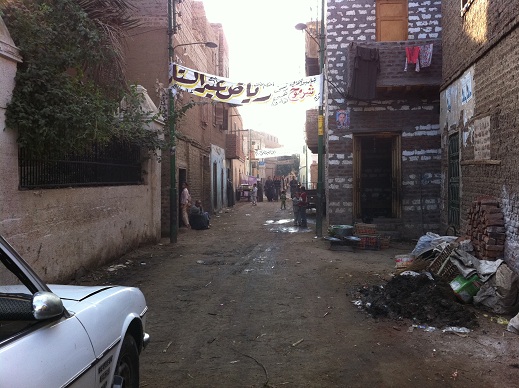CAIRO: Mercedes-Benz will begin building its top-of-the-line car in Egypt by the end of the year, the company announced on Tuesday.
Assembly of the S500L will take place in the factory owned by the Egyptian German Automotive Company (EGA), a joint venture between Mercedes-Benz s parent company DaimlerChrysler and National Automotive Company.
The factory, located in 6th of October City, currently assembles the E-class and C-class models with output from the plant sold exclusively in Egypt, with the exception of a one-off deal with China to which EGA sold 11 million euros worth of E-class vehicles in 2003.
With the addition of the new model to the EGA plant, Mercedes-Benz will assemble the S-class outside of Germany for the first time. As a result of this initiative and in light of the sophistication of the latest version of the car, Hans-Georg Lutz, managing director of Mercedes-Benz in Egypt, says that with the S-class, Egypt will be ahead of even the most developed countries in the world.
The government requires that local content make up a minimum of 45 percent of the cost of cars assembled in Egypt. Most of this local content is in the form of parts procured from domestic manufacturers.
EGA Chairman Sami Saad explains that the decision taken by the Ministry of Trade and Industry to allow car makers to compensate a shortfall in local content with exports made local production of the S500L possible. This encourages the industry as a whole to work in parts manufacturing, says Saad.
EGA also manufactures automobile spare parts, including axles, brake discs and metal stampings. Some 95 percent of the parts produced by EGA are exported to Mercedes-Benz factories in Germany.
It may seem that these are small parts that are of little importance, but the reality is contrary to this because the production of cars is essentially assembly [of parts], says Saad.
Saad adds that the Egyptian automobile sector should invest in the production of spare parts if it aspires to make a truly Egyptian car one day. The export of parts to foreign factories will encourage domestic production and procurement, facilitating the increase of Egyptian content in locally-assembled cars from its current level of 45 percent up to 70 percent.
Heinz Wachter, who used to work for Mercedes-Benz in the Gulf and is currently the service manager for Bosch in Egypt, agrees with Saad on the importance of parts in the production of cars, but believes that the quality of some domestically-manufactured parts, particularly certain body parts, need to be improved before Egypt can achieve a substantial and viable export-oriented industry for automobile assembly.
The decision to assemble the S-class in Egypt comes as a surprise to many industry observers and Wachter says that it is even more remarkable in light of the technological complexity of the new version of the car.
While sharing Wachter s surprise at the announcement, Automotive Gate Managing Director Mohammed Ibrahim disagrees with his assessment of locally-manufactured parts.
Ibrahim, who has 25 years of experience in the Egyptian automobile business, explains that the quality of Egyptian automobile parts has improved drastically over the past 10 years, as a result of the growth in domestic car assembly. Local part producers now use equipment similar to that of the original manufacturers and workers receive comparable training.
However, car production is more expensive in Egypt than elsewhere, due to the high cost of local parts and the expense of shipping and packing imported parts. Both spare part producers and car makers would therefore benefit from an increased export of automobile parts, as this will drive down the cost of part production due to economies of scale.
EGA currently has no plans to export the S-class, but Saad says that export opportunities for its other models may exist within the framework of the Greater Arab Free Trade Area (GAFTA) and the Common Market for Eastern and Southern Africa (COMESA) We first want to fulfill local demand and then consider export, says Saad.
Meanwhile, reflecting on his attempts to sell locally-assembled cars to other countries in North Africa, Ibrahim says that the GAFTA has only been activated in theory and that there is resistance from customs authorities to implement the agreement.

